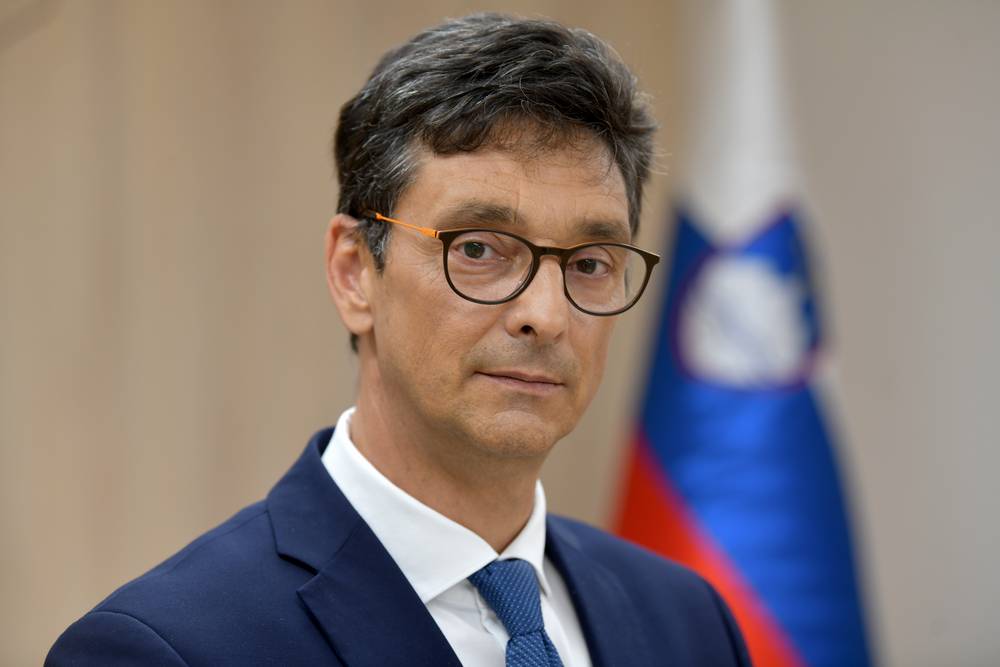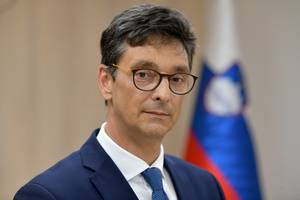73 years after the adoption of the Universal Declaration of Human Rights, which is commemorated on 10 December, as the world battles the consequences of the coronavirus pandemic, we are once again facing many challenges. In 1948, the issues of peace, justice and freedom were in the foreground at the United Nations General Assembly session in Paris, and these are still in the foreground in Slovenia today, as we strive to find answers regarding how to navigate a way out of the current health and social crisis.
Human rights and fundamental freedoms are highlighted in these times more than ever before. With the adoption and implementation of the Universal Declaration, many steps forward were taken in the past, but not all over the world. Established on the foundation that is a regard for human dignity, in Slovenia the achieved rights were enshrined as an exceptional heritage of nations in the Constitution of the Republic of Slovenia and other acts, and they have been cared for, strengthened and developed. With the rise of the pandemic, which has deepened the distress of many, increased inequality, aroused intolerance and deepened distrust between us, we have arrived at the point where we must ask ourselves whether our efforts to protect the dignity of everyone are sufficient and sincere.
On this year's Human Rights Day, I would therefore like to emphasise the importance of personal responsibility. I am convinced that each of us wants personal and social well-being, and this requires personal commitment. Merely waiting or complaining passively has never borne fruit, while assuming personal responsibility has. What I think, say, write and do is reflected at the social level. The rights of an individual are always limited by the rights of other individuals, as is our freedom, and we should be more aware of this. At this time of aggravated pandemic conditions, when we are facing the risk of the healthcare system collapsing, after it had already faced great difficulties before, we are faced with statistics revealing that more people have died than have been born (source), we should act more decisively. Everybody should do this in their own field of activity, starting with the leadership of the state, which must always act in a way that serves as an example. Instead of egotistically looking for the most appropriate path or answers for ourselves, we should put first all those among us who are currently the most vulnerable. The people that we often forget about are not numbers or statistics - they have names and individuality.
Selfless protection of the dignity of a fellow human being is our duty and the path we must choose if we want to recover as a society. Everyone can contribute to this – by getting vaccinated or tested, limiting social contacts, conducting respectful communication, not attacking those who think differently, but encouraging constructive and well-argued discussion, respecting the rule of law and the decisions of the judiciary branch of power, respecting many principles, including the principle of separation of powers, the principles of good governance, and taking into account the opinions of experts and independent institutions, etc. This is also how the dignity of our fellow human beings is respected.
As a society, we have established certain rules of operation and have enshrined many of them within the framework of the constitution, laws and other documents, thus ensuring legality and justice. In a society in which rules are clear and consequences are clear if rules are broken, there is certainty that consequently leads to a feeling of security. The feeling of security has a special importance for health in times of uncertainty. The pandemic has shaken up the security of our perception of the world, thereby affecting not only physical health, but mental health, too. Social rules have been put to the test in the new circumstances, so it is particularly important to respect the decisions of those bodies that assess which rules in society should apply so that the dignity of everyone is respected and their rights and fundamental freedoms can be exercised.
It is important to conduct a dialogue, not just provide information and instructions. It is only through dialogue that needs can be heard and the conditions for fulfilling them be provided. One of these is public health, which enables the exercise of the right to healthcare in a non-discriminatory manner, regardless of anything. The second one is public education, which also ensures the exercise of the right to education in a non-discriminatory manner. The third one is a suitable housing policy that will provide opportunities for young people to live independently and introduce comprehensive spatial planning, thereby bearing the needs of future residents in mind. The fourth, if not the first, condition is a sustainability-oriented society that will not exhaust natural and human resources. A society in which people receive decent pay for their work – in which there will be no underpaid occupations, which in turn lead to underpaid pensions, and in which a sole proprietor can afford to fall ill, as public administration employees can, without the additional 'social' fear of how to survive a month without sick pay. A society in which children will not go to school while fearing rejection because their parents are different or poor. A society in which care for the elderly will not be only a word of sympathy, but the community in the local environment acting in solidarity with the elderly.
Just as the immune system must function well for the organism to be healthy, only a society whose immune system functions well can be healthy - this is the active civil society, independent supervisory institutions, free and independent media, autonomous academia and other active members of society. A healthy society operates on the basis of the rule of law, it respects socially agreed rules, as well as the balance of powers; it relies on the power of argument, respectful dialogue, solidarity and community thinking, and hard-won democratic standards are not just a 'facade'.
In order to fully recover from the pandemic, to reconnect and strengthen the values that shape us as human beings, we must place compassion, humanity and tolerance back in the foreground. It is time to act rationally, and thus make sure that our rights and freedoms, which we have been forced to temporarily restrict as we fight the coronavirus disease, will be at the same level as they were before the pandemic, or at an even higher one. However, we can only do this by selflessly protecting the dignity of our fellow human beings. This is not our right, but our duty, which will ultimately bring us more peace, justice and (personal) freedom. This will put us back on track as a society that is resilient, fair and sustainable.
I wish you all the best!
Peter Svetina
Human Rights Ombudsman

